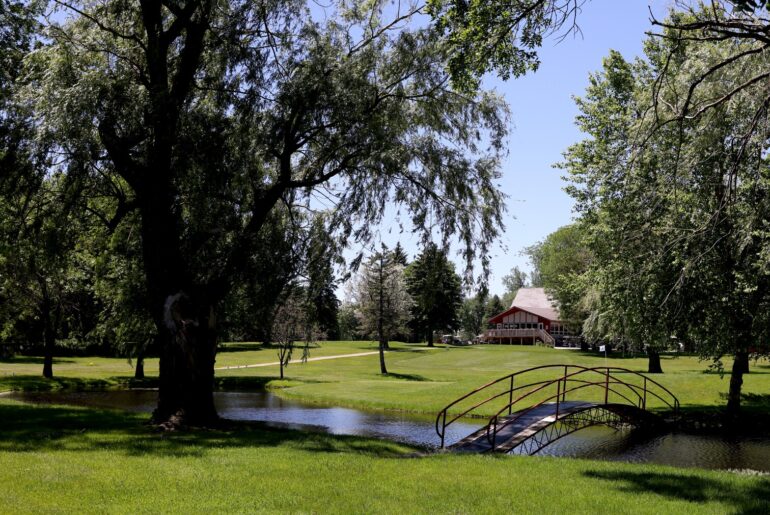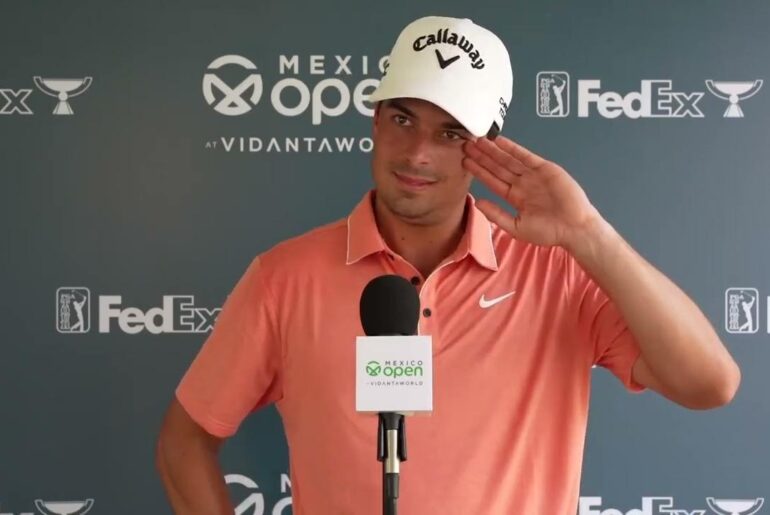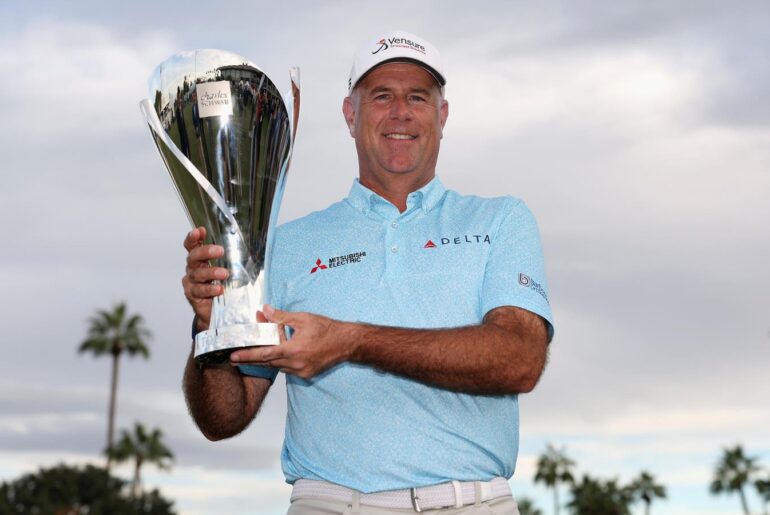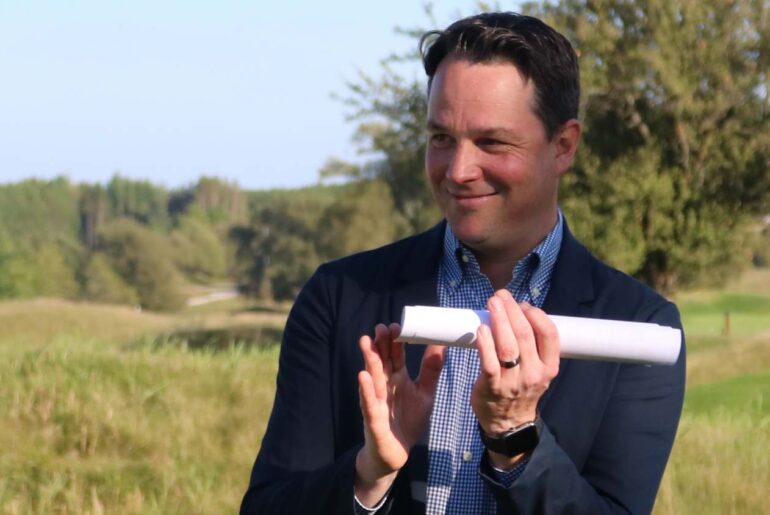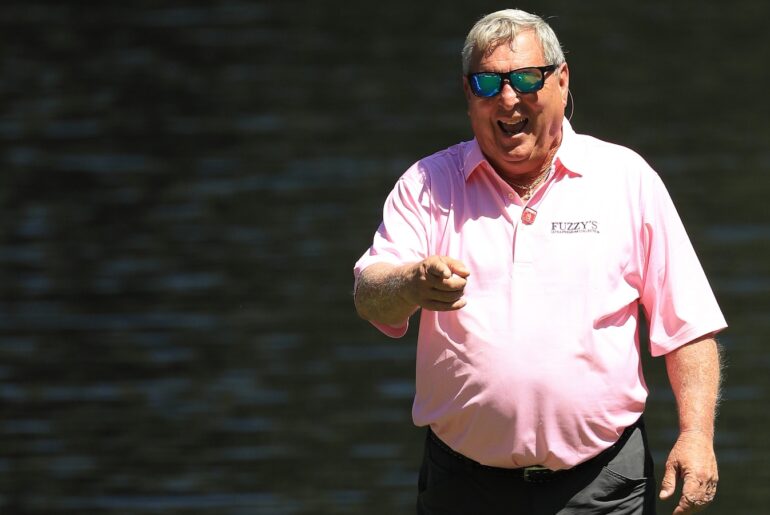Fuzzy Zoeller, the two-time major champion whose genial public persona was overshadowed by a racially insensitive joke about Tiger Woods that came to define the latter part of his career, has died aged 74.
No cause of death was immediately available. Brian Naugle, tournament director of the Insperity Invitational in Houston and a longtime colleague, said Zoeller’s daughter notified him of the death on Thursday.
Zoeller, born Frank Urban Zoeller Jr in New Albany, Indiana, was one of golf’s most outgoing characters across a career that delivered historic highs. He was the first player in more than four decades to win the Masters on his debut, claiming the 1979 green jacket after a three-man playoff. Five years later at the US Open at Winged Foot, he outlasted Greg Norman in an 18-hole Monday playoff after famously waving a white towel from the fairway, believing Norman had just holed a birdie putt to beat him. It turned out to be a par, and Zoeller won by eight shots the next day.
US president Donald Trump, who often praised Zoeller, posted a tribute on Truth Social. “Very sad to hear that the highly respected and beloved Professional Golfer, Fuzzy Zoeller, has passed away,” he wrote, citing Zoeller’s major victories and calling him “a truly remarkable person and player”.
But for all of Zoeller’s success and easygoing charm, it was the 1997 Masters that irrevocably altered his standing in the sport. As Woods marched toward a transformative, record-breaking victory at Augusta National, a relaxed Zoeller – drink in hand – was stopped by a CNN crew near the clubhouse and asked for his thoughts. His reply, delivered with a smile and a snap of his fingers, sparked immediate outrage.
“That little boy is driving well and he’s putting well,” Zoeller said, before adding that Woods should be congratulated, then joking that officials should “tell him not [to] serve fried chicken next year … or collard greens or whatever the hell they serve.”
Zoeller apologized, but the blowback only grew as it took Woods two weeks to address the remarks while traveling. Zoeller later said he received death threats for years. In Golf Digest in 2008, he called it “the worst thing I’ve gone through in my entire life,” adding: “If people wanted me to feel the same hurt I projected on others, I’m here to tell you they got their way.”
He said he had “cried many times” and offered “countless” apologies for words he described as a misguided attempt at humor that did not reflect who he was. “Still, I’ve come to terms with the fact that this incident will never, ever go away.”
Fuzzy Zoeller is congratulated by his caddie during the 1979 Masters in Augusta, Georgia. Photograph: Augusta National/Getty Images
Zoeller’s playing record extended well beyond his two major triumphs. He won eight additional PGA Tour titles, captured two PGA Tour Champions victories including a Senior PGA Championship, and represented the United States in three Ryder Cups. Known for playing quickly and whistling between shots, he cultivated an image of a player who both competed hard and relished the walk.
His 1979 Masters win remains one of Augusta’s most enduring debuts. Arriving as a first-time competitor, he reached a playoff after Ed Sneed bogeyed the final three holes. On the second extra hole, Zoeller stiffed his approach to six feet and rolled in the winning birdie, tossing his putter skyward in celebration. “I’ve never been to heaven,” he once said. “I guess winning the Masters is as close as I’m going to get.”
At Winged Foot five years later, he believed Norman’s 40-plus-foot par putt on the 18th was a birdie that had beaten him and responded with a theatrical white-towel wave from the fairway. After an official told him the score, Zoeller forced the playoff and dominated, though he later joked that he regretted giving away the now-famous towel.
Zoeller played college golf first at Edison Junior College and later at the University of Houston, then a powerhouse programme. He turned professional in 1973. His wife, Diane, died in 2021. He is survived by three children, including his daughter Gretchen, with whom he often played in the PNC Championship. He was awarded the USGA’s Bob Jones Award for sportsmanship in 1985.


